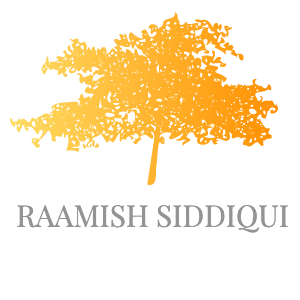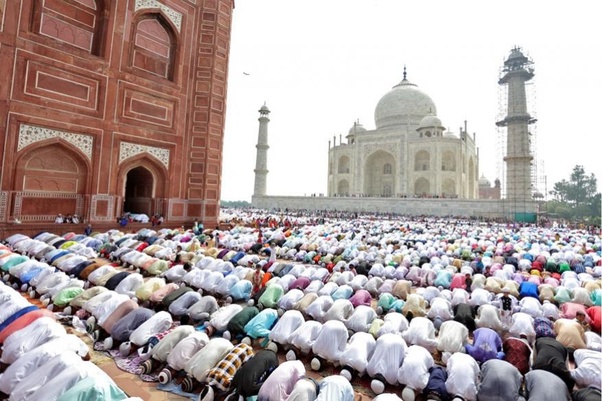Reform in Culture: A Forgotten Essential.
The call for bringing about reformation in Islam is not a new one. Each time Muslims are in news for negative reasons, this topic comes up. As per one of the Prophetic traditions, Prophet of Islam talked about a revivalist who will come after every century amongst Muslims (Sunan Abu Dawud, Kitab al-Malahim).
This Hadith tradition of the Prophet is a prediction that as time shall elapse, degeneration shall set in and Muslims would deviate from the actual teachings of Islam. Question comes what are these teachings and why after every century some of it gets lost? What is the overall effect of it on the followers of the faith?
While some Islamic scholars have referred to this as ‘renovation,’ however in my view it is a matter of bringing about a transformation in the mindset of Muslims.
Today Muslims world over find themselves at the epicentre of issues of various kinds. The question that arises is how we can deal with such issues and how can Muslims retrace steps back to the original teachings of Islam.
The starting point is to understand the difference between creed and culture. Creed is the established article of faith which is the basis of any religious belief. Culture is the set of practices prevalent in the societies. Reform is needed in the latter, not in the former.
As per Encyclopaedia Britannica, “culture is a pattern of behaviour shared by a society, or group of people”. It further says that “Each culture is unique. A group’s environment often decides the type of culture that develops.” This definition helps us understand a key point of difference between creed and culture. Environment determines culture, but not creed. For example, the teaching of Islam which is the essence of the creed does not get influenced by the environment or generation or time. Whereas cultural aspects like medium of communication, standards of education, costume, demographics of a society are a by-product of the immediate environment of that society. Development of culture is therefore a generational outcome; when a generation alters a practice, it gets cascaded down as a part of the culture.
Prophet of Islam predicted this degeneration but the question is what is the impact of such a degeneration and what can be done about it? Imam Ghazali said, we have to come back to revival. Revival of mind, revival of understanding of original teachings of Islam and their application in contemporary times.
The objective is not to reform Islamic creed, but to reform the Muslim mindset so that they can develop and flourish on an intellectual plane. In this journey of bringing about reform in Muslim society, the following verse of the Quran becomes a harbinger of hope for all of us. “God brings the earth back to life after its death” (57:16-17).
The process of revival of land is akin to the process of revival of a community. It beings with planting a healthy seed of thought and then tilling it with persistence and patience till it blooms into a sapling and then multiplies into a lush and verdant ecosystem.
The task at hand is to start from the beginning and not from the end. Islamic scholar, Maulana Wahiduddin Khan says that if we try to bring about reform by establishing political rule, it will not work. In his words, “if they start by reviving the spirit and bringing about intellectual development, then it will be a right beginning.”
The starting point is to understand the difference between creed and culture. Creed is the established article of faith which is the basis of any religious belief.
This is because the degeneration of a culture reflects the degeneration of the spirit of individuals in that society. The starting point is therefore education. It is at the very root of reform. It is through education – both formal and informal – that we can inculcate positive thinking in the society, start self-criticism, identify the areas of change and turn it into an incentive to outperform and contribute to the betterment of the world at large. Here I must add, that the idea of reform must not be equated to empowerment. Empowering a singular community or group is a regressive practice. Not only does it take away the incentive to outperform and the will to be meritorious, it impedes the development of the nation as a whole.
Progress lies in the progress of the country and not in the empowerment of a specific group or community. Those who purport the idea of empowerment often say that this is needed because when a culture already is behind on the development curve, a special impetus is needed to bring it forward. But this is illogic and in fact a very superfluous approach towards development.
Development can only be robust if it is bottoms up, which means that the basics must be set right and mindset should be worked upon so that a community or group of people can find their intellectual way up. Going step by step is itself an experiential learning process, one that not only matures an individual but also lends the right perspective.
Let me take the example of Indian Muslims – the most immediate need for them is to recognise that they are not a separatist group but citizens of a great nation. They cannot isolate themselves from the rest of the nation and expect to develop. Such an approach can only be a progression to doom, not development.
Culture is subject to scrutiny and change to suit the demands of the contemporary world and to keep the development engine going. Unfortunately, Muslims around the world have made culture sacrosanct. This inability to evolve the cultural practices over a period of time has resulted in a stark intellectual backwardness in the community. We see the impact of this in the present-day Muslim youth, who ends up developing a regressive and negative worldview. This negative worldview is why there are so many issues facing the Muslim society – be it health, education, economy – everywhere they are falling short.
It is therefore incumbent on all of us who have recognised this need to get up and strive to make a difference, and break-free from the shackles of confinement and evolve as an intellectually awakened community contributing towards the holistic development of its nation!

